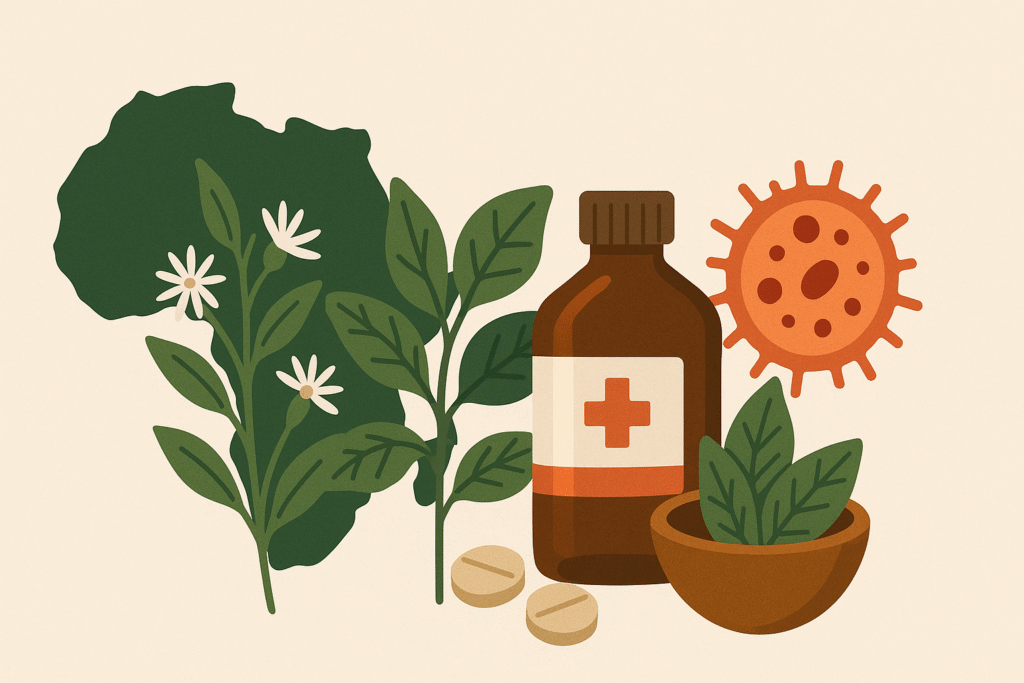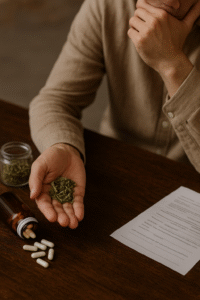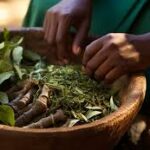How Herbs Help Africa Fight Chronic Diseases

Africa is battling a growing health crisis: chronic diseases such as diabetes, hypertension, cancer, and heart disease are on the rise. According to the World Health Organization (WHO), non-communicable diseases now account for nearly one-third of all deaths in Africa. While modern medicine provides effective treatments, it is often expensive and inaccessible to millions.
At the same time, herbal medicine — rooted in African tradition — is gaining renewed attention. The big question is: can herbal medicine play a meaningful role in managing chronic diseases across Africa?
Why Herbal Medicine Matters in Chronic Disease Care
Herbal medicine has always been part of African healthcare. With over 80% of Africans relying on traditional medicine at some point in their lives, it is not only a cultural practice but also an affordable alternative for people who cannot access or afford modern treatments.
Herbal medicine is increasingly being explored for chronic diseases because:
- Affordability – Cheaper than imported pharmaceutical drugs.
- Accessibility – Locally available in rural communities.
- Holistic Care – Addresses the body, mind, and spirit.
- Growing Scientific Interest – Some herbs show promising results in clinical studies.
Herbal Medicine and Specific Chronic Diseases
1. Diabetes
- Herbs Used: Bitter leaf (Vernonia amygdalina) and Moringa (Moringa oleifera).
- What Science Says: Research shows these herbs may help regulate blood sugar levels, though standard dosages remain unproven.
2. Hypertension (High Blood Pressure)
- Herbs Used: Garlic (Allium sativum) and Hibiscus (Hibiscus sabdariffa).
- What Science Says: Garlic supplements may lower blood pressure, while hibiscus tea has demonstrated blood pressure–reducing effects in clinical trials.
3. Cancer
- Herbs Used: Soursop (Annona muricata) and Turmeric (Curcuma longa).
- What Science Says: Turmeric’s compound, curcumin, shows anti-inflammatory and antioxidant properties. However, most evidence is still preliminary.
4. Heart Disease
- Herbs Used: Flaxseed, Ginger, and Garlic.
- What Science Says: These herbs may support heart health by reducing cholesterol and improving circulation, but should not replace prescription medicines.
Benefits of Herbal Medicine in Chronic Care
- Cost-effective for patients in low-income settings.
- Culturally trusted, which improves adherence.
- Preventive role through immune boosting and lifestyle integration.
- Complementary use alongside modern medicine.
Challenges of Using Herbal Medicine for Chronic Disease
- Lack of Standardization – Dosages and quality vary widely.
- Drug-Herb Interactions – Some herbs interfere with prescription drugs.
- Limited Research – Few large-scale clinical trials in Africa.
- Regulatory Gaps – Many herbal products remain unregulated, increasing the risk of counterfeits.
The Future of Herbal Medicine in Africa’s Chronic Disease Fight
The future looks promising if governments, researchers, and healthcare providers invest in integration. Key steps include:
- Investing in research to validate herbal remedies through clinical trials.
- Strengthening regulation to ensure herbal product safety and authenticity.
- Training healthcare providers on herbal medicine to guide patients responsibly.
- Promoting collaboration between traditional healers and modern health systems.
Conclusion
Herbal medicine is not a cure-all, but it can play a transformative role in managing chronic diseases in Africa. From bitter leaf helping diabetics to hibiscus lowering blood pressure, traditional herbs hold untapped potential.
For Africa to win the fight against chronic illnesses, the future lies in integration, not competition. By combining modern medicine with safe, scientifically validated herbal remedies, Africa can create a more affordable, accessible, and culturally relevant healthcare system.
Written by Fawzi Rufai, Medically Reviewed by Sesan Kareem




